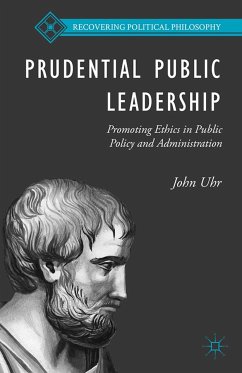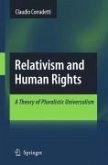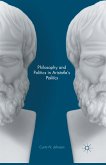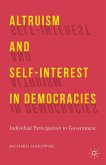Dieser Download kann aus rechtlichen Gründen nur mit Rechnungsadresse in A, B, BG, CY, CZ, D, DK, EW, E, FIN, F, GR, HR, H, IRL, I, LT, L, LR, M, NL, PL, P, R, S, SLO, SK ausgeliefert werden.
"John Uhr brings a refreshing and thoughtful treatment of Aristotle's political philosophy to contemporary understandings of public administrative leadership ethics in Prudential Public Leadership. As typical of his excellent scholarship, Uhr's erudition and clear writing make Aristotelian thought come alive for our field. This is an innovative contribution to public administration literature that will certainly attract scholarly attention." - Terry L. Cooper, Maria B. Crutcher Professor in Citizenship and Democratic Values, University of Southern California, USA
"John Uhr's Prudential Public Leadership provides valuable new insights into ethics and leadership in public administration. Combining a nuanced theoretical engagement with Aristotle, Kant and Mill, with a thoughtful appreciation of the competing practical demands of virtue, duty and utility, Uhr makes a compelling case for the primacy of prudence or judgment for good leadership in public administration." - Haig Patapan, Director, Centre for Governance and Public Policy, Griffith University, Australia
"Beginning by identifying three central issues that define democratic leadership the problems of rhetoric, of practical reason, and of 'dirty hands' Uhr goes on to examine three philosophical perspectives for addressing these problems, considering the extent to which Millian utilitarianism, Kantian deontology, and Aristotelian virtue ethics can inform the study and practice of leadership. Insightful, erudite, and eminently readable, Uhr makes a compelling case for bringing social science, history, and philosophy into dialogue in a unique and fruitful way." - Stephen G. Salkever, Mary Katharine Woodworth Professor, Bryn Mawr College, USA
"Uhr reinvigorates the study of public ethics with a rich and nuanced understanding of the historical foundations of three three major schools. He illustrates with great textual dexterity and historical awareness how the sources of so much modern public ethics Aristotle, Kant, Mill provide a far more nuanced and realistic approach to how to connect ethics and political action than their followers." - J. Patrick Dobel, John & Marguerite Corbally University Chair of Public Service, University of Washington









